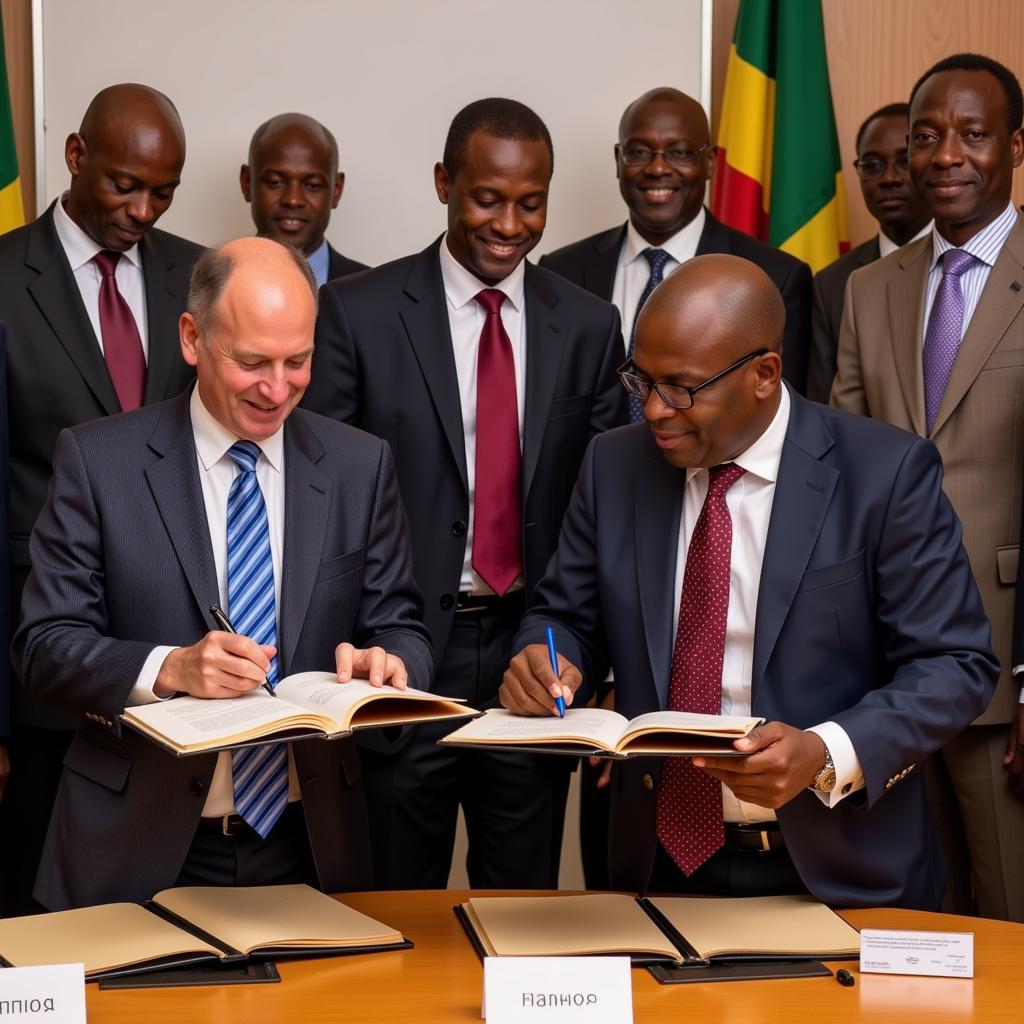African Country Whose Capital Name US President: Monrovia, Liberia
Liberia, an African Country Whose Capital Name Us President, offers a fascinating glimpse into the complex relationship between Africa and the United States. The capital city, Monrovia, named after US President James Monroe, stands as a testament to this historical connection. This article will delve into the history, culture, and significance of Monrovia, exploring its unique identity within the broader context of Liberia and its relationship with the United States.
Monrovia: A Capital City with a Presidential Name
Monrovia’s name reflects the unique historical circumstances of Liberia’s founding. Established in 1822 by the American Colonization Society (ACS), Liberia served as a haven for freed African American slaves. The ACS, backed by prominent US figures including President James Monroe, aimed to repatriate these freed slaves to Africa. Naming the capital after President Monroe was a symbolic gesture, acknowledging his support for the colonization effort. This naming convention underscores the deep, albeit complex, ties between the two nations.
The History and Significance of Monrovia’s Name
The naming of Monrovia wasn’t merely a political act; it was a statement about the aspirations and ideals of the early settlers. They sought to create a new society, modeled on American principles, in the land of their ancestors. Monrovia, therefore, represents a blend of African heritage and American influence. This unique blend is reflected in the city’s architecture, culture, and even its political system.
Liberia and the United States: A Complex Relationship
The relationship between Liberia and the United States extends beyond the naming of Monrovia. The ACS’s involvement in Liberia’s founding shaped the country’s early development, influencing its political, economic, and social structures. While this relationship has had its challenges, it continues to be a significant aspect of Liberian history and identity.
Exploring the Impact of the American Colonization Society
The ACS’s influence on Liberia is a complex and often debated topic. While the organization facilitated the repatriation of freed slaves, its actions also had unintended consequences. The arrival of the Americo-Liberians, as the settlers were known, created a social divide between them and the indigenous population. This divide has played a significant role in shaping Liberia’s political and social landscape.
“The ACS’s legacy is a mixed bag,” says Dr. Fatima Diallo, a historian specializing in Liberian history. “While it provided an opportunity for freed slaves to establish a new life, it also laid the groundwork for social tensions that continue to resonate today.”
Monrovia Today: A City of Contrasts
Modern Monrovia is a city of contrasts, reflecting the complexities of Liberia’s history. It’s a bustling urban center with a vibrant culture, yet it also bears the scars of past conflicts and social inequalities. The city is a microcosm of Liberia itself, showcasing both the challenges and the potential of this West African nation.
The Cultural Landscape of Monrovia
Monrovia’s cultural landscape is a rich tapestry woven from diverse influences. The Americo-Liberian heritage is evident in the city’s architecture, language, and customs. However, the indigenous cultures of Liberia also play a vital role, contributing to the city’s unique identity. This blend of cultures creates a vibrant and dynamic urban environment.
“Monrovia is a melting pot of cultures,” explains Joseph Mamba, a local artist. “It’s a place where different traditions coexist, creating a unique and vibrant atmosphere.”
Conclusion: Monrovia, an African country whose capital name us president, stands as a powerful symbol of the complex historical relationship between Liberia and the United States. From its founding to its present-day reality, Monrovia’s story is interwoven with the narrative of the transatlantic slave trade, repatriation efforts, and the enduring connections between two nations across continents. Exploring Monrovia’s history offers a valuable lens through which to understand the complexities of African-American history and the ongoing dialogue between Africa and the United States.
FAQ
- Why is Liberia’s capital named Monrovia?
- What is the significance of the American Colonization Society in Liberia’s history?
- What is the cultural landscape of Monrovia like?
- What is the current relationship between Liberia and the United States?
- What are some key historical events that have shaped Monrovia?
- What are the main economic activities in Monrovia?
- What are some of the challenges facing Monrovia today?
Common Questions:
- What are some popular tourist destinations in Monrovia?
- What is the best time to visit Monrovia?
- What are some cultural customs to be aware of when visiting Monrovia?
Suggested Further Reading:
- Learn more about the history of Liberia
- Discover the diverse cultures of West Africa
When you need support, please contact us at Phone Number: +255768904061, Email: kaka.mag@gmail.com Or visit us at: Mbarali DC Mawindi, Kangaga, Tanzania. We have a 24/7 customer service team.

